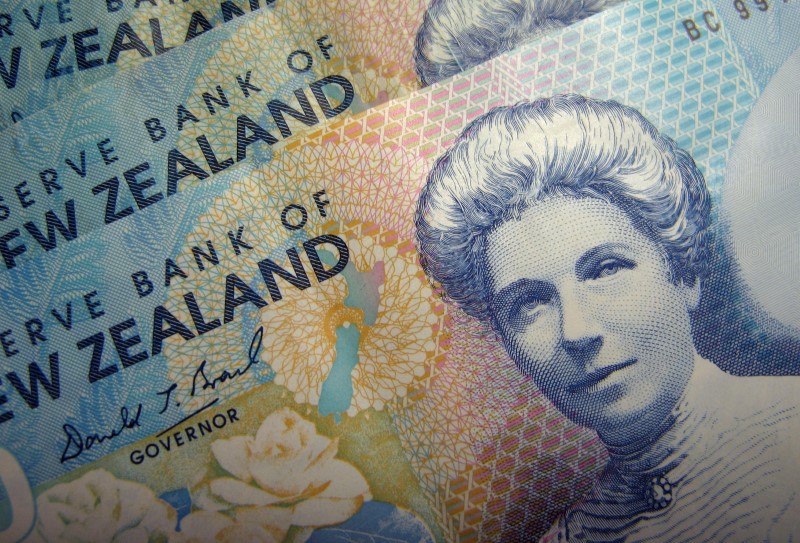By Ambar Warrick
Investing.com -- Asian currencies moved in a flat-to-low range on Wednesday, while the dollar stuck to two-month lows as weak economic data fueled increasing concerns over an economic slowdown this year.
The New Zealand dollar was the sole outlier among global currencies, rallying 0.6% after the Reserve Bank of New Zealand hiked rates by a bigger-than-expected 50 basis points, and flagged more action against high inflation. But the central bank also warned of slowing economic growth, as the country recovers from the impact of cyclone Gabrielle earlier this year.
But most other currencies trended lower, with trading volumes in Asia also muted on account of a Chinese market holiday.
The Philippine peso fell 0.2% as data showed that inflation eased more than expected in March, while the Singapore dollar pared some losses after retail sales rebounded far more than expected in February.
The Japanese yen was flat, but was sitting on gains over the past two days amid increased safe haven demand. Data also showed that Japan's service sector grew at a higher-than-expected pace in March, largely offsetting a decline in manufacturing activity.
The Indian rupee fell 0.1% ahead of a Reserve Bank meeting on Thursday, where the RBI is widely expected to raise rates by 25 basis points.
The Australian dollar fell 0.1%, extending losses from Tuesday after the Reserve Bank held interest rates steady. But the currency pared some losses after RBA Governor Philip Lowe warned that rates could still rise further, especially as inflation remains stubborn.
The U.S. dollar hovered around a two-month low, with the dollar index and dollar index futures moving little in Asian trade. The greenback tumbled in overnight trade after U.S. job openings fell more than expected in February, pointing towards some more cooling in the jobs market.
The data largely overrode a warning from Federal Reserve Bank of Cleveland President Loretta Mester that interest rates will likely rise despite economic weakness, given that inflation is still relatively high.
But with a cooling jobs market and steadily worsening economic conditions, markets doubted just how much more headroom the Fed has to keep raising interest rates. This notion weighed on the dollar, while U.S. Treasury yields also fell sharply over the past three days.
While the prospect of a less hawkish Fed bodes well for Asian currencies, regional markets saw little support as fears of an economic slowdown kept markets wary of risk-driven assets. Safe havens such as gold saw increased demand, with the yellow metal now within striking distance of a new record high.
